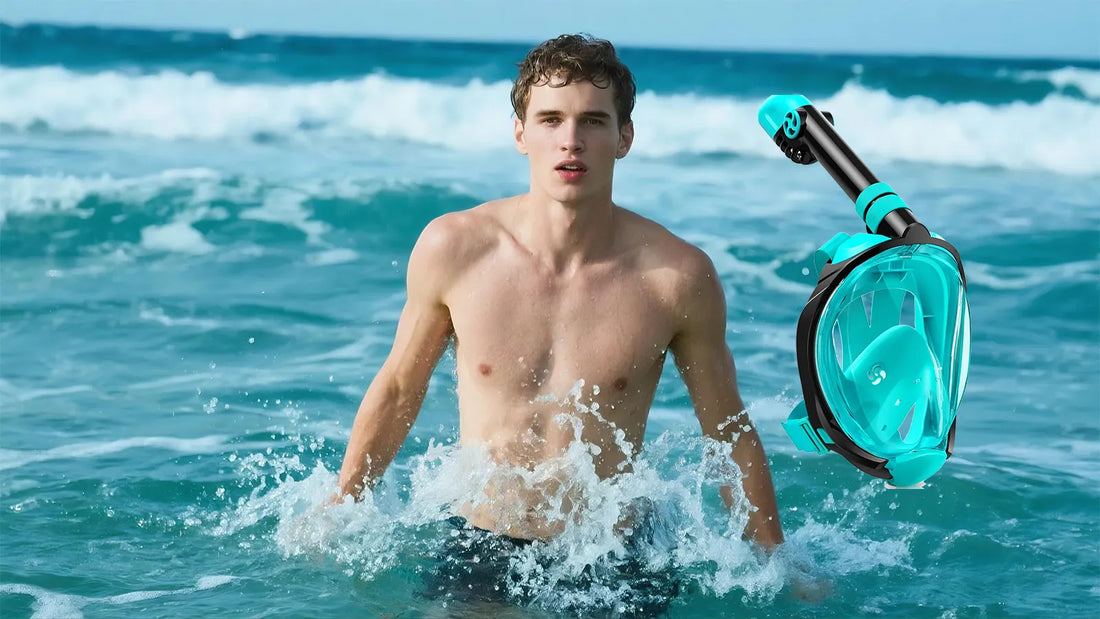Scuba diving is an exhilarating adventure that allows you to explore the wonders of the underwater world. But what happens when nature calls at the worst possible moment? The question of what to do if you have to poop while scuba diving is one that many divers avoid discussing, yet it's a real and pressing concern. Let's dive into the details of this unusual predicament and explore how to handle it with grace and practicality.
The Science Behind the Urge
When you're underwater, the pressure changes can affect your body in unexpected ways. The increased pressure can compress gases in your digestive system, potentially making you feel the need to relieve yourself. Additionally, the cold water can stimulate blood flow to your core, which might accelerate digestion. Understanding these physiological factors is the first step in preparing for the possibility of needing to poop while diving.
Preparation is Key
Before heading out on a dive, it's essential to take precautions to minimize the chances of needing to poop underwater. Eating a light meal a few hours before diving can help, as heavy or greasy foods can upset your stomach. Staying hydrated is also crucial, but avoid excessive caffeine or alcohol, as they can act as diuretics. If you're prone to digestive issues, consider taking an over-the-counter remedy to prevent discomfort during your dive.
What to Do in the Moment
If you find yourself needing to poop while underwater, the first step is to stay calm. Panicking can lead to poor decision-making and increase the risk of accidents. Signal to your dive buddy or instructor discreetly, and head to a secluded area if possible. Most wetsuits and diving gear are designed to be watertight, but it's still important to be mindful of your surroundings to avoid contaminating the environment.
Environmental Considerations
Pooping in the ocean can have environmental consequences, so it's essential to be responsible. Human waste can introduce harmful bacteria and nutrients into the water, potentially disrupting marine ecosystems. If you must go, try to do so in deeper water away from coral reefs or other sensitive areas. Some divers carry biodegradable waste bags designed for underwater use, which can help minimize the impact.
Post-Dive Cleanup
After the dive, it's important to clean yourself and your gear thoroughly. Rinse your wetsuit and equipment with fresh water to remove any residue, and consider using a disinfectant to ensure everything is sanitary. Showering as soon as possible is also recommended to maintain personal hygiene and prevent skin irritation.
Mental Preparedness
Dealing with the need to poop while scuba diving can be mentally challenging, but it's a natural part of being human. Accepting that this situation can happen and preparing for it mentally can make it easier to handle if it does. Remember, your dive buddies and instructors have likely faced similar situations and can offer support and advice.
Tips for Beginners
If you're new to scuba diving, it's especially important to be aware of this potential issue. Start by discussing it with your instructor during your training. They can provide guidance on how to handle the situation and may even share personal experiences. Practicing good habits, such as using the restroom before diving and staying mindful of your body's signals, can help you avoid this problem altogether.
Advanced Techniques
For experienced divers, there are advanced techniques that can make handling this situation easier. Some divers use specialized equipment, such as underwater waste disposal systems, to manage the issue discreetly. Others rely on quick-release mechanisms in their wetsuits to facilitate cleanup. Exploring these options can provide added peace of mind during your dives.
The Importance of Communication
Open communication with your dive buddy or instructor is crucial in any diving scenario, including this one. Establishing a discreet signal for needing to poop can help you convey the situation without causing embarrassment. Trust and understanding between dive partners are essential for handling unexpected challenges underwater.
Health and Safety Considerations
Ignoring the need to poop while diving can lead to discomfort, distraction, and even health issues. Holding it in for too long can cause cramps, bloating, or more severe digestive problems. Prioritizing your health and safety by addressing the issue promptly is always the best course of action.
Cultural Perspectives
Different cultures have varying attitudes toward bodily functions, and this can influence how divers approach this topic. In some cultures, discussing such matters openly is taboo, while in others, it's seen as a practical concern. Being aware of these cultural differences can help you navigate conversations about this issue with sensitivity and respect.
Final Thoughts
While the idea of needing to poop while scuba diving might seem daunting, it's a situation that can be managed with preparation, awareness, and a sense of humor. By understanding the science behind the urge, taking preventive measures, and knowing how to handle the moment, you can focus on enjoying your underwater adventure without worry. Remember, every diver faces unique challenges, and this is just one of many that can be overcome with the right mindset and approach.

